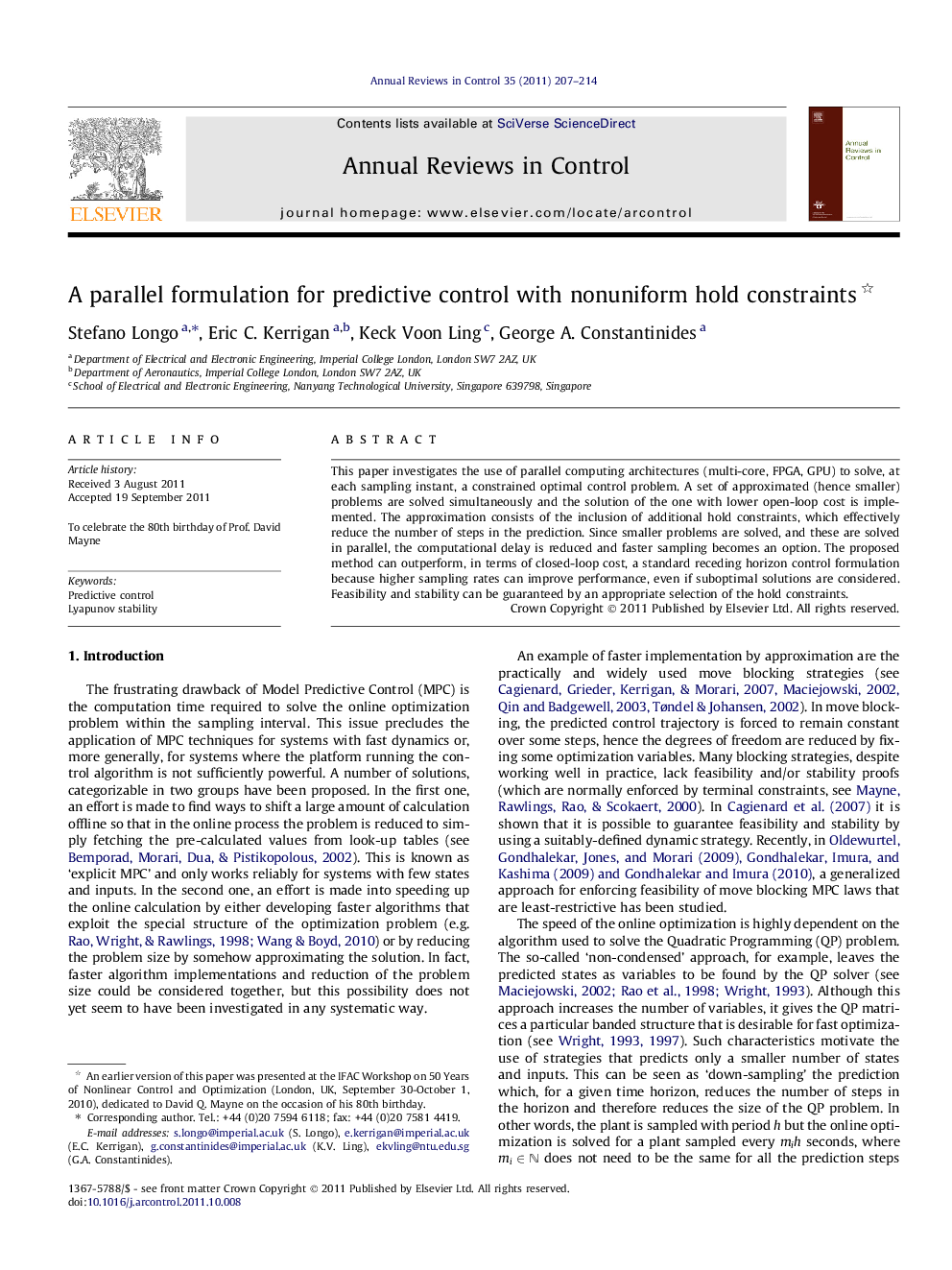| Article ID | Journal | Published Year | Pages | File Type |
|---|---|---|---|---|
| 694766 | Annual Reviews in Control | 2011 | 8 Pages |
This paper investigates the use of parallel computing architectures (multi-core, FPGA, GPU) to solve, at each sampling instant, a constrained optimal control problem. A set of approximated (hence smaller) problems are solved simultaneously and the solution of the one with lower open-loop cost is implemented. The approximation consists of the inclusion of additional hold constraints, which effectively reduce the number of steps in the prediction. Since smaller problems are solved, and these are solved in parallel, the computational delay is reduced and faster sampling becomes an option. The proposed method can outperform, in terms of closed-loop cost, a standard receding horizon control formulation because higher sampling rates can improve performance, even if suboptimal solutions are considered. Feasibility and stability can be guaranteed by an appropriate selection of the hold constraints.
